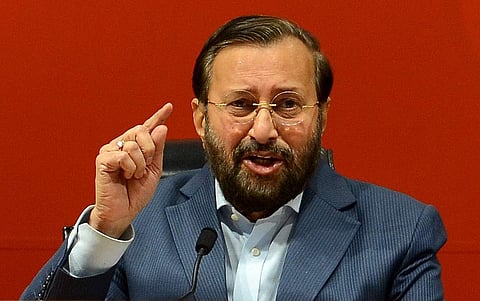

NEW DELHI: A proposal in the newly unveiled draft national education policy to implement the three-language formula throughout the country, with Hindi compulsory in schools, has triggered protests from southern states, particularly Tamil Nadu.In the evening, I&B Minister Prakash Javadekar said it was just a recommendation and the government had not deliberated on it. “The Modi government has been of the view that all Indian languages should develop and no language will be imposed on anybody.”
The draft policy, prepared by a nine-member committee headed by former Indian Space Research Organisation Chief K Kasturirangan, was released on Friday for public feedback on the first day of the new Narendra Modi government. The panel has suggested teaching of Hindi, English and one regional language in the non-Hindi speaking states. For Hindi-speaking states, the committee has recommended teaching of Hindi, English and one of the modern Indian languages from other parts of the country.
“In keeping with the principle of flexibility, students who wish to change one of the three languages they are studying may do so in grade 6, so long as the study of three languages by students in the Hindi-speaking states would continue to include Hindi and English and one of the modern Indian languages from other parts of India, while the study of languages by students in the non-Hindi speaking states would include the regional language, Hindi and English,” the proposal says.
The recommendation has been seen as imposition of Hindi on non-Hindi speaking states and has been protested by education experts and politicians from southern states. Janki Rajan, professor of education at Jamia Millia Islamia, said that while multi-linguality was good, students should be given a bouquet of languages they could choose from. “In the draft policy, what the students should pick up as three languages is already specified, and I think that’s problematic,” she said. Senthil Nathan of Campaign for Language Equality and Rights said Tamil Nadu did not have an issue if some students opted for Hindi, but it would be a big concern if the Centre made Hindi compulsory.